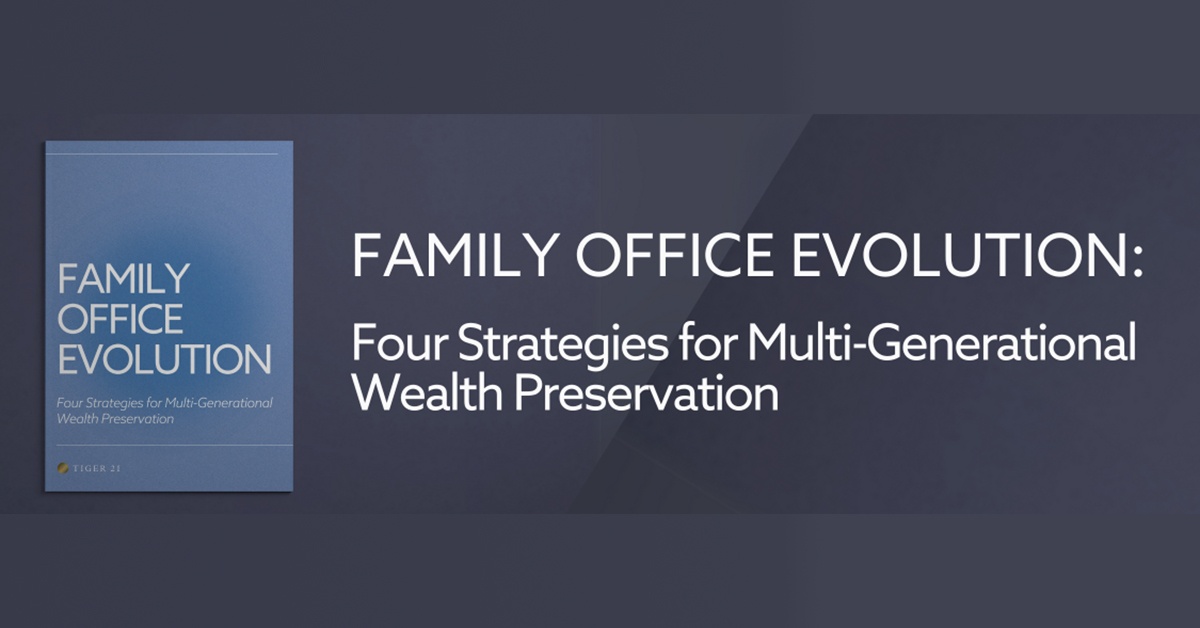Setting Up a Family Office: A Guide for UHNWIs

Establishing a family office grants affluent families the opportunity to exercise greater control over assets, implement personalized strategies, and secure their legacy for future generations. Setting up a family office is a strategic process that requires careful planning and a comprehensive understanding of the family’s financial goals and dynamics.
From selecting the most suitable structure to navigating regulatory and legal considerations, this guide delves into setting up a successful family office.
Clarify Your Objectives and Family’s Needs
Transparent communication helps in aligning expectations and creating a shared vision.
Clarifying the objectives and unique needs of your family is pivotal in setting up an effective family office. These steps lay the foundation for the family office’s mission and ensure that its services are tailored to your family’s short and long-term goals.
Your family must articulate its financial and non-financial goals to determine whether comprehensive services beyond investment management are needed. Objectives can vary widely, and a family office’s purpose is to serve as a strategic partner in achieving them.
Factors like your family’s net worth, asset types, risk tolerance, and preferred investment strategies should be considered. Equally important is grasping your family’s dynamics and governance structure. Are there multiple generations involved? Are there potential conflicts that need resolution? Engaging in open dialogue among family members is key. This ensures that all stakeholders have a say in shaping the family office’s objectives and services. Transparent communication helps in aligning expectations and creating a shared vision.
Once the objectives and needs are clear, the family office can tailor its services accordingly. Regular review and adaptation of the family office’s strategies ensure that it remains in sync with changing circumstances and goals.
Choose the Right Family Office Structure
Selecting the right structure hinges on your family’s specific circumstances, financial objectives, and preferences. To choose the best structure for your needs, consider factors like customization, cost efficiencies, and the level of control you desire.
There are primarily three common structures.
| Single Family Offices (SFOs) | Multi-Family Offices (MFOs) | Hybrid Models |
| SFOs are ideal for ultra-high-net-worth families seeking complete customization and control over their wealth management. SFOs are dedicated to serving a single family, offering tailored services but often at a higher cost due to exclusivity. | MFOs cater to multiple families, pooling resources to provide cost-effective solutions. They offer a range of services and shared expertise, making them appealing for those looking for comprehensive wealth management without the expense of a dedicated SFO. | Some families opt for hybrid models, which blend elements of both SFOs and MFOs. This approach allows for customization while leveraging shared resources, striking a balance between exclusivity and cost-effectiveness. |
Aligning the chosen structure with your family’s values and long-term objectives is crucial when starting a family office. With your family’s net worth, complex financial needs, and desire for privacy in consideration, the decision should empower your family to manage and grow its wealth while preserving its legacy effectively. For more on different types of Family Offices, click here.
Assemble a Team of Experts
Choosing the right team is imperative. The expertise and cohesion of a family office team directly impacts the effectiveness of wealth management and achieving the family’s financial goals. These experts will be the backbone of your family office and guide you through complex financial decisions. Here are key considerations for building a robust team:
Start with a capable leader or chief executive officer (CEO) with strong financial acumen and experience in managing family wealth. This individual should align with your family’s values and vision.
Engage investment managers, analysts, and advisors with diverse expertise, covering asset classes such as equities, fixed income, real estate, and alternative investments. They should craft investment strategies aligned with your family’s risk tolerance and growth objectives.
Legal counsel ensures that the family office operates within legal boundaries, manages estate planning effectively, and navigates complex regulatory frameworks. Compliance professionals ensure adherence to financial regulations and reporting.
Tax professionals optimize your family’s tax strategy, minimizing liabilities while staying compliant with tax laws. Accountants oversee financial reporting and manage financial records.
Additional personnel to consider includes advisors for estate and succession planning, risk management and insurance, technology and cybersecurity, family governance and education, and lifestyle and concierge services.
Effective coordination and communication among these experts are key to a family office’s success. Additionally, the team should be aligned with your family’s values and long-term objectives, ensuring that your family’s wealth management is both effective and harmonious.
Create a Comprehensive Wealth Plan
Work closely with your team to develop a detailed and integrated wealth management plan that ensures the prudent management of assets but also aligns with your family’s financial goals, values, and long-term vision. This should include a diversified investment strategy across various asset classes to optimize returns and robust risk management strategies to safeguard your family’s wealth from market fluctuations and unforeseen events.
Start by conducting a thorough analysis of your family’s financial situation, including assets, liabilities, income, and expenses to understand the complete financial picture. Define specific financial objectives regarding wealth preservation, growth, philanthropic goals, estate planning, and risk management.
Identify and assess various financial risks, such as market volatility, inflation, and legal or regulatory changes, that could impact your family’s wealth. Develop strategies to mitigate these risks. Furthermore, develop an asset allocation strategy that aligns with your family’s risk tolerance and financial goals. Diversification across asset classes is key to managing risk and optimizing returns.
Implement tax-efficient strategies to minimize tax liabilities while staying compliant with tax laws. This includes strategies like tax-efficient investments, estate tax planning, and gifting strategies. Develop a plan for the orderly transfer of wealth across generations, which may involve creating trusts, wills, and other legal instruments to protect assets and reduce estate taxes.
Establish Governance and Family Office Policies
Establishing governance is paramount to ensure effective decision-making, transparency, and the preservation of family values and wealth across generations. If necessary, appoint a family governance advisor to facilitate communication and decision-making among family members.
Start by creating a family constitution or charter outlining your family’s values, vision, and guidelines for managing wealth and family relationships. This document outlines your family’s values, mission, and vision for wealth management. It also defines the roles and responsibilities of family members, advisors, and external professionals, and establishes clear lines of communication. Appoint a family council or board of directors to oversee key decisions.
Establish clear decision-making protocols. Define which decisions require family consensus and which can be delegated to the hired professionals. This helps prevent conflicts and ensures efficient operations. Develop a process for resolving conflicts that may arise within your family. This may involve an impartial mediator designated to handle disputes impartially.
If family members work within the family office, establish clear employment policies, including hiring criteria, job descriptions, and performance evaluations. Separate family and business matters to maintain professionalism. Emphasize the importance of privacy and confidentiality regarding family financial matters.
Family Office Compliance and Regulatory Considerations
Compliance and regulatory considerations are of utmost importance for family offices to navigate the complex financial and legal landscape while ensuring adherence to laws and regulations. Implement security protocols and privacy measures to protect sensitive financial and personal information.
When setting up a family office, choose the appropriate legal structure for your family office, such as a limited liability company (LLC) or a trust. The choice may impact tax obligations and regulatory requirements, including reporting and tax planning strategies in line with tax codes. Depending on the jurisdiction and services offered, family offices may need to register with relevant regulatory authorities, such as the U.S. Securities and Exchange Commission (SEC) or state securities agencies.
Compliance with securities laws is particularly important if your family office provides investment advisory services, and require monitoring to update policies and adapt to changing regulations. Retain legal counsel or compliance experts with expertise in family office regulations to provide guidance. Failure to address compliance and regulatory considerations can result in legal challenges, fines, and reputational damage.
Technology and Reporting Systems
Leveraging technology and robust reporting systems helps efficiently manage and monitor your family’s wealth, investments, and financial data. Technology fosters transparent communication through online portals, enabling family members and family office personnel to access financial information securely. Data aggregation, investment tracking, and reporting and analytics all play a central role in ensuring an up-to-date financial picture.
As family wealth grows, technology can accommodate the increasing complexity of financial matters and reporting requirements. Automation of routine tasks, such as bill payment and record-keeping, streamlines operations, freeing up time for strategic wealth management. Robust cybersecurity measures safeguard sensitive financial data and protect against cyber threats, which are of increasing concern.
Embracing technology enhances efficiency, accuracy, and client satisfaction, ultimately contributing to the family office’s long-term success.

Philanthropy and Impact Investing
Philanthropy and impact investing have become integral components of many family offices’ wealth management strategies. Philanthropic strategies allows families to create a lasting legacy by supporting causes aligned with their values. Impact investing goes a step further, aiming to generate positive social and environmental outcomes alongside financial returns. By this into their wealth plans, family offices not only make a difference in the world but also instill their values in future generations, fostering a sense of purpose beyond wealth accumulation.
Education and Family Legacy
Family offices recognize the importance of equipping the next generation with financial literacy and understanding of wealth management principles. Through educational initiatives family offices can empower heirs to be responsible stewards of the family’s wealth, make informed financial decisions, and understand the family’s finances.
These efforts also extend beyond financial matters, emphasizing the preservation of your family’s values, traditions, and legacy. By nurturing informed and values-driven successors, family offices ensure that wealth isn’t just sustained but also enriched with purpose and a commitment to the family’s legacy.
Review and Adaptation
Regularly assessing investment strategies, governance structures, and compliance with evolving regulations is crucial. Family offices must adapt to market conditions, family dynamics, and shifting goals. This flexibility ensures that the family office remains aligned with your family’s objectives. By staying agile and responsive, family offices can address challenges and opportunities, safeguarding financial assets and legacy for future generations.
Continuity and Succession Planning
Continuity and succession planning ensures a smooth transition of leadership and wealth across generations. These plans encompass identifying and preparing the next generation for leadership roles within the family office. It also involves outlining procedures for the orderly transfer of wealth, including estate planning, governance structures, and tax strategies, and implementing contingency plans for potential disruptions and safeguard the family office’s operations and assets.
By proactively addressing continuity and succession, family offices safeguard legacy, maintain stability, and ensure that objectives are carried forward. This approach fosters longevity, allowing the family office to adapt and thrive while preserving family values and wealth. For more insights on succession planning, click here.
Set Up Your Family Office Today
A family office is more than a financial institution; it becomes a custodian of the family’s vision, safeguarding its interests and values across generations. With planning and a dedicated team, the family office becomes a powerful tool, empowering families to navigate the complexities of wealth while securing their financial future.
For those uniquely experiencing the management of a family office, a peer learning group may be a helpful resource. TIGER 21’s Family Office Group Membership gives ultra-high-net-worth individuals a like-minded community and safe, confidential space to discuss the unique considerations of running a family office. Learn more about TIGER 21 Membership here.
Download the Family Office Checklist
About TIGER 21
TIGER 21 is an exclusive global community of ultra-high-net-worth entrepreneurs, investors, and executives.
Explore the TIGER 21 Member ExperienceMember Insight Reports










